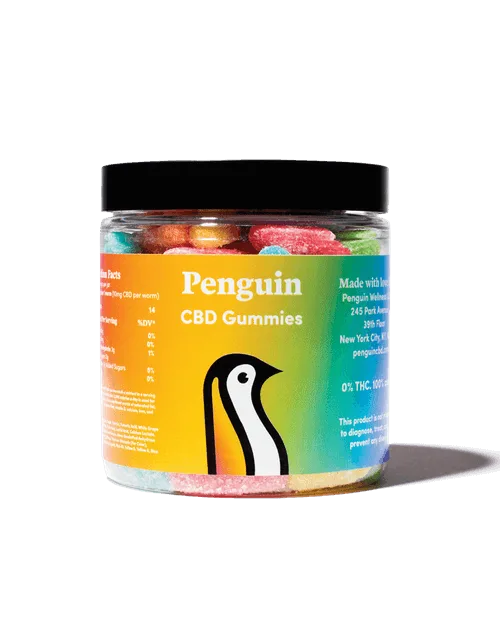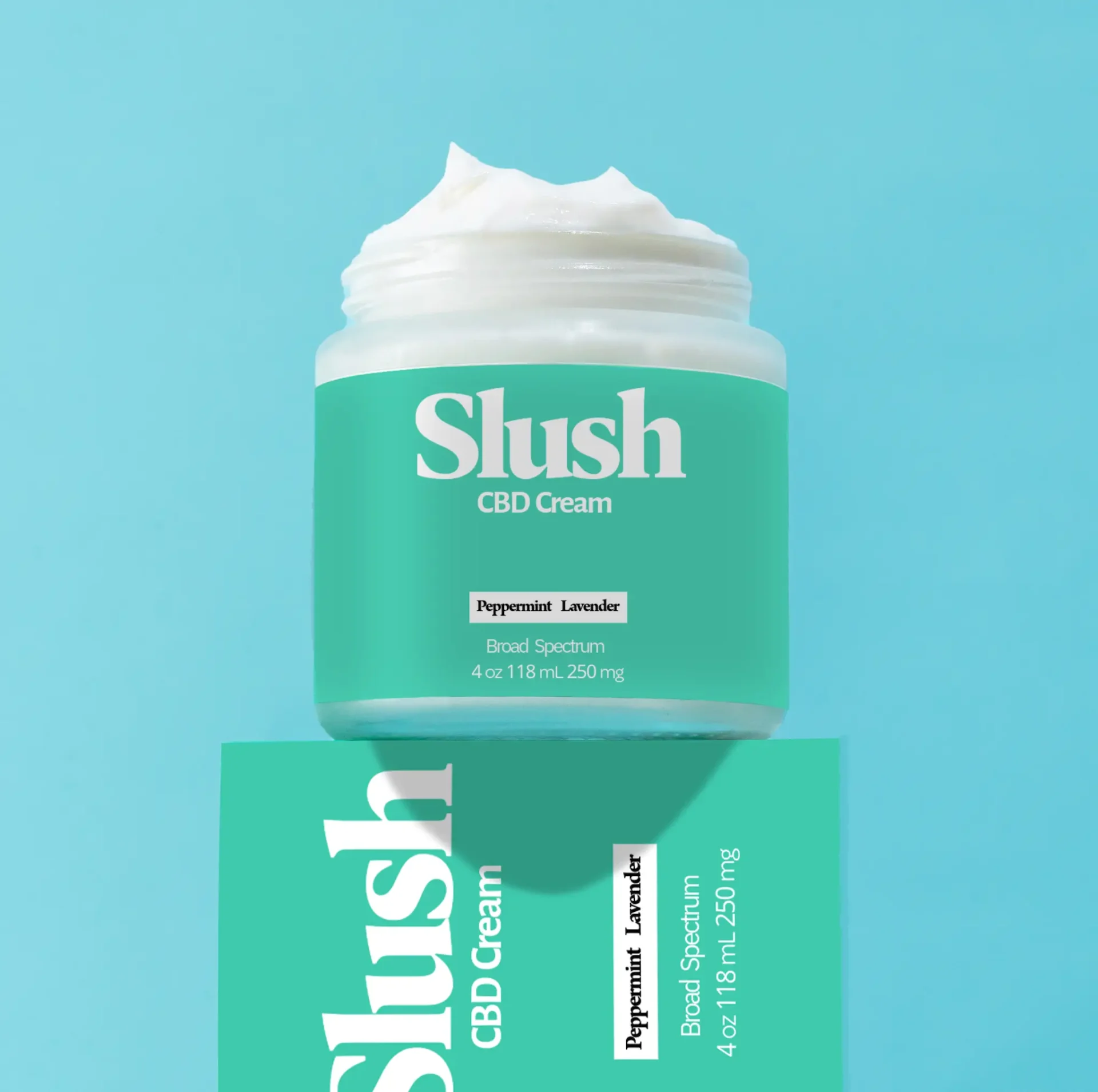When Is the Best Time to Take CBD Oil?
 By Penguin CBD
By Penguin CBDWith all the hype about CBD in recent years, many people wonder if it might be something they too should try. CBD became legal across the entire U.S. in late 2018 thanks to the Farm Bill. The substance is non-intoxicating, so it doesn’t get you “high.” This makes it even more appealing to people, because they can use it at any time of day without it interfering with other work or activities.
One of the most interesting things about CBD is that sometimes it appears to provide a relaxing experiencing and at other times users experience an energy boost. While nothing is certain, more studies on CBD help researchers understand how exactly CBD works on the human body.
With this information, as well as information from the many anecdotal reports from CBD users, it is getting easier for experts to give solid advice about how to use it.
New CBD users often wonder when the best time is to take CBD. Should they take it first thing in the morning? Should they take it before bed? At what other times of day would it be beneficial to take it and why?
There are no universal answers to these questions, but with a little bit of background information, individuals can get a better idea of how to incorporate CBD into their routine. So here at Penguin CBD we have created a helpful little guide to help you out.
How to Determine the Best Time of Day to Take CBD
Many people use CBD for their general wellness. However, because each individual has a unique body chemistry, the way CBD works for different people can vary. Plus, sometimes the same CBD user can experience energy from it while at other times they experience a relaxed feeling. Additionally, how CBD is consumed can change how the body responds to it.
Because there are so many factors involved and CBD research is ongoing and inconclusive at this point, the first step in understanding when to take CBD is to pay close attention to how you feel when you take it. The FDA does not regulate CBD; therefore, users must figure out when to take it, how to take it and how much to take.
Taking note of the way CBD makes you feel is a gradual process that cannot be achieved in one dosage. There are several reasons for this. The first is that, as indicated above, substances can have different effects on different users.
The human endocannabinoid system (ECS) plays an important role in modulating many of the body’s other processes, including the immune system, the autonomic nervous system and homeostasis.
However, exactly how it works is still not fully understood. When CBD enters the body, it interacts with the ECS and other bodily systems. Until more is known about both CBD and the ECS, the only way to know how you will respond to it is by trying it.
That being said, CBD has been shown in numerous studies to be safe to use. This is no doubt a contributing factor to why it has become so popular. The known side effects are not common or serious, and when they do occur, they are mild to moderate in severity. These include reduced appetite, drowsiness, dry mouth and diarrhea.
When introducing any substance to the body, it can take time to build up and have an effect. With regular CBD consumption, the ECS efficiency can increase, which is why it can take time before a comprehensive understanding of how it works on their body is reached.
Different methods of CBD consumption can also impact how it makes a person feel. CBD can be consumed orally, sublingually, by inhaling it (usually done through a vape) or used topically. Each method of consumption is unique in onset time as well as how long it lasts, and can alter from person to person.
Consuming CBD orally, as it must pass through the digestive tract before it enters the bloodstream, has the longest onset time, which is between one and two hours. Oral CBD consumption, such as by dropping CBD oil into your beverage or taking a CBD gummy or capsule, also lasts the longest, up to 12 hours.
Sublingual CBD consumption, or dropping and holding it under the tongue, takes between 15 and 45 minutes for onset, and can last anywhere from four to six hours.
The onset of CBD when inhaled is usually within minutes, though the duration of the effects is the shortest. When CBD is applied topically, it never enters the bloodstream, and its effects are primarily local. Onset can take up to an hour as the CBD works its way into the body.
To understand the best time of day to take CBD, most people use trial and error. They start with a small dosage, typically between 4 and 22 mg, and slowly increase the dosage until they achieve the desired effect.
Experimenting with different methods of consumption can be helpful to individual users. This way, they can best understand not only how specific dosages affect them, but how the various ways of taking CBD make them feel.
CBD has been found to lead to different sensations at different dosages. For instance, one study found that higher dosages of CBD led participants to feel drowsy. This could be one reason some CBD users report feeling an energy boost from it while others find it relaxing.
The way an individual feels after taking CBD may change over time, even for regular CBD users. If you notice this is happening to you, reevaluate your dosage and consumption method to find something more suitable to your wellness goals.
Overall, it’s a process to find the best time of day to take CBD based on all of these factors, plus your individual body chemistry, metabolism and weight.
Other physiological and psychological factors may have an influence too. With no universal guide for figuring out your ideal time of day to take CBD, you will have to test it out yourself to find a schedule that works for you.
Reasons to Take CBD in the Morning
CBD research is still in its early stages, and scientists are gradually learning how it works on the body. Studies and personal stories from users have shown that CBD seems to make people feel their mood lifted or a boost of energy.
Many people choose to take CBD first thing in the morning to take advantage of this. It’s becoming quite common to add a few drops of CBD oil directly to a cup of coffee to start the day.
Another reason people choose to take CBD in the morning is that it’s easier to remember to take it when it has been incorporated into their routine. This applies especially to those who decide to use CBD daily rather than sporadically. If you’re already taking daily vitamins, supplements or medications, adding something like a CBD capsule to that routine takes no effort at all.
Many people who feel alert when taking CBD opt to take it orally, as the effects are longer-lasting. Taking something like a CBD gummy in the morning will keep that wakeful sensation around all day.
Reasons to Take CBD at Night
CBD has also been known to make people feel calm, relaxed or drowsy. If this is the case for you, taking CBD at night might be the right move. Depending on your method of consumption, how long you take it before bedtime will vary.
For example, if you plan to put drops of CBD oil into your tea at night, consider that it can take up to two hours to kick in. On the other hand, if you plan on sleeping shortly after taking CBD, using a vape pen to inhale it will lead to the onset of effects within minutes.
Either way, the relaxation you feel from the CBD will coincide with when you would normally go to sleep.
Why Some People Take CBD Before and After Exercising
Conclusive research specifically related to CBD and sports has not been completed yet. Still, many athletes and other physically active people have found that CBD positively impacts their overall wellness in both their pre- and post-workout routines.
Using CBD before and after workouts or athletic training could have potential benefits because of how the ECS is involved in physiological functions such as energy, coordination, metabolism and sleep.
Athletes began to take an interest in CBD in 2018, when the World Anti-Doping Agency removed it from its list of prohibited substances. Because CBD does not enhance performance and has no psychoactive effects, it is believed to be safe and fair for professional athletes.
The energizing sensation that can come from CBD is one reason it has become a part of many pre-workout routines. Having that extra burst of energy can help to maximize productivity while exercising.
Simultaneously, the relaxation people feel from CBD can make it desirable as an addition to post-workout supplements and stretching. Overall, many physically active people have found CBD to be a worthwhile addition to their training.
Microdosing CBD
Because the body may use CBD more efficiently after it builds up in the system, microdosing, or taking CBD in very low doses more frequently and regularly, is another common practice in the CBD community. It is a way to optimize the health and wellness benefits of CBD. People who microdose CBD take it several times a day. Microdosing typically happens using CBD oil, as it is easy to measure the exact dosage.
Here is an example of how microdosing works. Instead of taking 30 mg of CBD first thing in the morning, that 30 mg would be divided into smaller doses, such as five doses of six mg each spread out throughout the day.
The way CBD interacts with the ECS is the primary reason for microdosing CBD. The ECS participates in regulating the overall endocannabinoid balance in the body, including mood, memory, temperature, heart rate and hormonal equilibrium. Theoretically, taking CBD in microdoses rather than a single larger dose will enable the body to maintain more consistent ECS levels throughout the day.
Not much research has been done on CBD microdosing yet, but the consensus is that it’s safe. Some athletes microdose CBD because there may be an internal body system that could lead to better physical performance when equilibrium is maintained. This is an indirect relationship that has not been evaluated.
How Often to Take CBD Is a Personal Choice
A universal time of day that is best to take CBD does not exist. Ultimately, the choice is made by the individual based on their body makeup and chemistry, and their reasons for taking CBD. The best course of action is to be open to testing out different times of day, dosages and consumption methods.
It is important to consult with your doctor about CBD before taking it. CBD may interact with other prescription medications, so to avoid unnecessary complications, your doctor should know about your CBD usage. Additionally, your doctor may be able to answer your questions about CBD, as he or she will probably have access to the most up-to-date CBD research.
On a final note, while CBD is generally considered safe to use, it is not regulated by the FDA, so CBD companies are in a free-for-all situation where they may choose not to be honest about where their CBD products are made or what is in them.
Because of this, it’s essential to do some research about a company before trying their CBD products. If they are transparent about their hemp origin and provide third-party lab tests to ensure they are the correct potency and purity, they are probably a safe bet.











